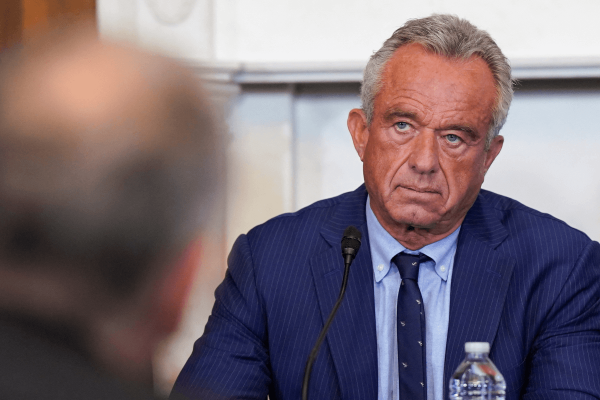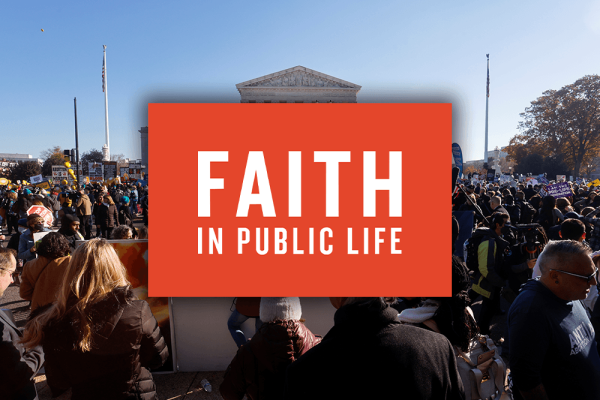WE LIVE IN a ruthless world that exhausts our bodies and souls. We are constantly bombarded with messages, reels, texts, and images that set our moral compasses spinning. As seekers of a more just world, the pressure to respond overwhelms us as we have never seen before. And so, I ask: When was the last time you intentionally cared for your body and soul?
The guilt one feels when one rests is a manifestation of how oppressive systems have convinced us that to rest and breathe is contrary to the necessities and requirements of a functioning society. And yet, we must breathe because the fight for a more just world is not only outside of us. It is also in us.
This month’s lectionary readings invite us to first breathe. Then, as we breathe, we are invited to become peacemakers, witnesses of righteousness, justice-seekers, and reconciling siblings. All these invitations are heavy. They are easier said than done. Many of us have probably responded to such invitations a long time ago. Our wounds and scars tell stories of what happens when we say yes.
Scars are marks of healing from yesterday’s struggles. To breathe is to reconnect the tissues of interdependence and mutuality that sustain our work for a more just world. To breathe does not neglect the issues at hand; rather, it helps us remember that we have divine witnesses who are sustaining us here and now.
March 2
Breathe and Rest
Exodus 34:29-35; Psalm 99; 2 Corinthians 3:12 - 4:2; Luke 9:28-43
LIVING OUT THE gospel in socially just ways can be intense and exhausting. If I were one of the 12 disciples of Jesus, I am not sure if I could keep up with Jesus’ schedule. Before the transfiguration (Luke 9:28-36), Jesus and the 12 were feeding at least 5,000 people (9:12-17), and doing healings and exorcisms in different communities (9:1-6). No wonder Peter, John, and James were not able to stay awake even as the transfiguration happened. Here, Luke uses the Greek word bebareménoi to describe the burden of exhaustion and need for sleep. This Greek word is also used in describing the burden of life’s afflictions (see 2 Corinthians 1:8) and the weight of financial difficulties (see 1 Timothy 5:16). In other words, all these passages validate our collective feelings on how social holiness is rewarding but can also be burdensome.
The irony is that Matthew 11:28-30 tells us the yoke of Christ is easy, and his burden is light. And yet, the yoke of living out the gospel while making ends meet is hard; the burden of keeping passion for social justice alive is heavy. Apathy and political conflict get in the way. Nevertheless, we persevere because we have seen the transfigured Christ, and we are transfigured with him. We have seen that there is hope because we are not alone. Though we are tired, we believe that God is with us, helping us breathe and live another day.
March 9
Tithing and Caring
Deuteronomy 26:1-11; Psalm 91:1-2, 9-16; Romans 10:8-13; Luke 4:1-13
THE ATROCITIES HAPPENING in the Levant are heartbreaking. As a parent of two young children, my heart breaks whenever I see pictures and videos of children disfigured, maimed, or killed by bombs and bullets. What do I do when I am trapped by the rat race of suburban life causing me to neglect the other?
This week’s lectionary passages give us a glimpse of a cautiously hopeful response from a practice that is not necessarily concerned about caring for the other: tithing. Deuteronomy 26:1-11 reminds the Jews that tithing is an act of thanksgiving to God for saving them from affliction, toil, and oppression (verse 7). To give the first fruits of the ground to God is to participate in the humble reminder that their ancestors were once wandering Arameans who went down to Egypt as aliens to survive. Through tithing, the Jews are invited to remember God’s mercy. The exposition of tithing ends with one last reminder: to share the bounty of the land with the aliens residing among them (verse 11), and to care for the orphans and widows (verses 12-13). Here, I have realized that what is required of me is not to be messianic, as if I am the savior who could rescue children all over the world. Rather, in my privileged and yet weary situation, I am invited to do whatever I can to thank God, welcome the foreigner, and care for the orphans and the widows here and now.
March 16
Letters from Prison
Genesis 15:1-12, 17-18; Psalm 27; Philippians 3:17 - 4:1; Luke 13:31-35
THE LETTER TO the Philippians was written by Paul in prison. In his enslaved, colonized, and dying body, he wrote a letter of inspiration for the church of Philippi to hold fast in their faith. Instead of being comforted, Paul comforted other followers of Christ amid their suffering under the Roman Empire.
Paul’s determination to inspire the other reminds me of José Rizal, a national hero of the Philippines. Growing up in the Philippines, we were encouraged to read and watch theatrical renditions of Rizal’s novels as reminders of our past and the importance of liberation from oppression. We learned that Rizal courageously wrote and fought for his people even though it led to his death. In prison, Rizal wrote a poem entitled “Mi Último Adiós” (“My Last Farewell”) that contains his love for his people and nation. This poem and other writings unsettled the Spanish empire and invigorated the people’s drive for liberation. Instead of being comforted, Rizal inspired us to never give up even under oppression.
Philippians 3:17 encourages us to “observe those who live according to the example you have in us.” We are blessed to be able to observe the lives of Paul, Rizal, and other inspiring witnesses who have demonstrated the fullest expressions of social holiness. We are surrounded by clouds of witnesses who inspire us to pursue justice amid difficulties and even indifference. May their lives and letters continuously move us to strive for a better world.
March 23
Cut It Down
Isaiah 55:1-9; Psalm 63:1-8; 1 Corinthians 10:1-13; Luke 13:1-9
THE HOUR OF reckoning has finally come to many high-profile Christian leaders. We have witnessed a slew of cases against famous Christian leaders who are accused of immoral and illegal actions. We do not expect them to be perfect; nevertheless, we hope that they will at least be honest about their failings. Their time has finally come, and now they have been cut down like a fig tree that does not bear fruit. Luke 13:1-9 speaks of the importance of repentance in Christian faith. In this time of Lent, we know how important it is to repent of our sins. And yet, to do so is difficult and humiliating. That is why many have chosen to cover up their multitude of sins instead of repenting. That is, until they get caught or their past catches up with them.
Christianity does preach on forgiveness and providing grace-filled opportunities to those who seek reconciliation and cleansing from sins. Also, there are biblical passages such as Luke 13:1-9 that declare punishment to those who are recalcitrant. To those who never repent or who deny their guilt even though they’ve been caught, Luke 13:1-9 is a scathing reminder that the Bible speaks of justice as well as forgiveness. Perhaps in certain situations justice requires removing decayed branches to help the tree one day bear fruit.
March 30
Reconciling Siblings
Joshua 5:9-12; Psalm 32; 2 Corinthians 5:16-21; Luke 15:1-3, 11-32
AMONG MANY POSSIBLE themes emanating from the Prodigal Son narrative (Luke 15:11-32), I find the older-brother-versus-younger-brother tension fascinating. I see this struggle in various biblical narratives such as the stories of Cain and Abel (Genesis 4), Jacob and Esau (Genesis 25-36), and Joseph and his brothers (Genesis 37-50). In contemporary culture, I love observing how the Marvel universe created sibling-like tension between Captain America (Steve Rogers) and Iron Man (Tony Stark). As a fan of this film franchise, I see echoes of the parable of the Prodigal Son in the perspectives of these two characters. Tony Stark is the prodigal son, and Steve Rogers is the well-behaved and hardworking older son. Avengers’ Captain America: Civil War (2016) revolves around their clashing ideologies. And yet, in the face of seemingly insurmountable difficulties, the two brothers set aside their differences and fight their enemies together. At the end of Avengers: Endgame (2019) Steve Rogers says, “I thought, maybe I’ll try some of that life Tony was telling me to get.”
Luke’s Prodigal Son narrative does not tell us if the two brothers reconciled. If they did, I wonder if they would have reconciled as Steve Rogers and Tony Stark did. That is, Steve did not villainize Tony. He found goodness in his brother, and even listened to his advice, no matter how prodigal Tony seemed.

Got something to say about what you're reading? We value your feedback!






